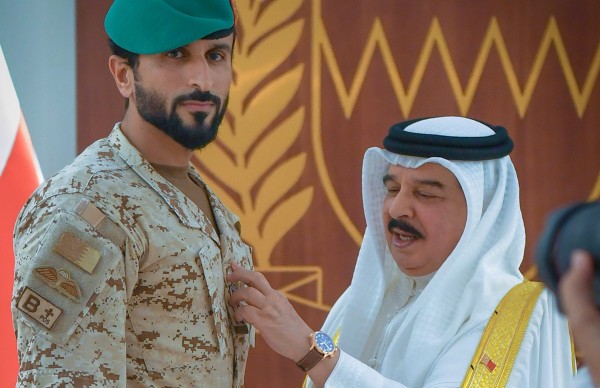Bahrain Worse than Sudan: Public Debt Getting out of Control

2023-05-24 - 11:55 am
Bahrain Mirror (Exclusive): Bahrain's public debt-to-GDP ratio, according to International Monetary Fund figures, reached 124.7%, the highest in the list of Arab countries after Sudan, and this is probably enough to describe the level of risk the country's finances have reached.
Bahrain came after Sudan, which has been suffering from civil wars, armed conflicts and political disputes for decades, which have left more than two million dead. So why did the debt increase in a country that hasn't witnessed all of this?
When Hamad bin Isa Al Khalifa came into power, the country's public debt was only $3 billion. 20 years later, the public debt reached about $39 billion, which means that the public debt had increased up to 1,300%.
The king exploited the country's finances in the wealth and influence conflict with his uncle Khalifa bin Salman, and nationalized many resources for his benefit and the interests of his sons. We can refer here to putting ownership of public lands in the disposal of the royal court, in addition to the establishment of Mumtalakat Company, which manages the country's non-oil assets.
Under Decree 19/2002, public lands were transferred from the custody of Khalifa bin Salman to the king, and the area of Bahrain extended more than 9% during the reign of the king due to sea reclamation, and the islands of Bahrain grew from 33 to 84 islands.
The country lost all these vast areas to a family that represents nothing to the population, and the king and his sons own and invest in public land. The value of the properties transferred to their ownership amounted to $40 billion, an amount equal to the public debt.
Mumtalakat Company, founded by the king 7 years after he took office, manages public assets worth about 15 billion dinars, but they are no longer included in the country's budget and are managed only by his family.
Mumtalakat has for years refused to contribute to the country's general budget, although it manages government stakes in large companies such as Alba, GARMCO, Batelco, National Bank of Bahrain, ASRY among others.
Aluminum Bahrain, for example, earned more than 400 million dinars ($1 billion) last year alone, but that amount was not included in the country's budget.
As for oil resources, it is enough to mention that the revenues of the Bahrain-Saudi pipeline are not included in the country's budget, as MP Ahmed Qarata confirmed. He said that the government told him not to ask where the money from refined oil goes.
Through the Oil and Gas Holding Company, run by King Nasser bin Hamad Al Khalifa's son, the family has acquired oil assets, however, public budgets do not reveal the real figures of the Bahrain field's production or its share of the Abu Saafa field.
Despite its acquisition and disposal of state revenues, the ruling family continues to drain the country's budgets by borrowing amounts above the country's fiscal needs and disposing them outside the framework of the general budget.
Although it recorded a surplus of at least 3 billion dinars, the government borrowed 500 million dinars under the pretext of covering a non-existent deficit and added it to the country's public debt.
It is true that Bahrain has not witnessed a civil war that would have drained its finances, weakened its economy and destroyed its political stability, nonetheless, it is under the rule of a family that seizes public resources, and above all adds more than half a billion dinars annually to the public debt for its own personal benefits and interests.
- 2024-05-08Bahrain: One Step Forward, Two Steps Back
- 2024-05-06Ali Haji May Face Imprisonment Again on Charges of "Penetrating a Restricted Area"
- 2024-05-01Was the Resumption of Flights with Iraq Expected?
- 2024-04-20Recent Releases in Bahrain: Something Has Changed
- 2024-04-04Return of Repression to Bahrain's Streets with the Crown Prince and Prime Minister's Blessing